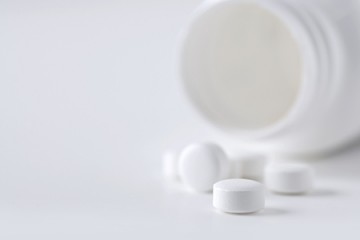Johns Hopkins neuroscientist Linda Gorman set the tone for her talk on drugs and brain chemistry Wednesday night with a clarifying statement.
"I'm not going to preach at you," she told the crowd of students at Goldfarb Gym. "I'm not going to tell you about the evils of drugs and alcohol. I'm not going to pretend you're not going to use some of these substances."
Gorman, a professor in JHU's Department of Psychological and Brain Sciences, stuck with science for the night, explaining how drugs—particularly alcohol, marijuana, and opiates—disrupt the brain's reward system.
Her talk was part of a new university outreach effort to raise awareness among students about issues related to drug and alcohol use, with a specific focus on health, safety, and science.
The Work Hard/Play Smart campaign will include other speakers, events, and promotional activities, including a visit from substance abuse expert Jason Kilmer of the University of Washington this spring.
Work Hard/Play Smart begins with the base assumption that Hopkins students are intelligent to begin with, says Toni Blackwell, JHU's senior associate dean of students. The campaign encourages students to apply that intelligence to their decisions about drugs and alcohol.
"We're trying to get our students to think a bit more about their own health and wellness, and to think about that in a more holistic and responsible way," Blackwell said.
Barbara Schubert, associate director of JHU's Center for Health Education & Wellness, or CHEW—the health arm of the Homewood campus Student Health and Wellness Center—said the campaign focuses on education, addressing issues including prevention, long-term consequences, drug interactions, and addiction.
Gorman's talk Wednesday focused on the latter topic, explaining in basic terms how the chemicals of drugs and alcohol can activate the brain's reward pathway in unnaturally "longer, faster, stronger" ways that feed cravings and addiction.
"We would rather use cocaine than eat food, even if we were starving," she said, "because our brain knows that the cocaine made us happier than when we ate food."
On a scale of addiction risks, nicotine is tops, followed closely by opiates, Gorman said. And although marijuana has the least addiction potential among commonly used drugs, the neuroscientist noted bluntly that "it makes you stupid" by affecting learning and memory functions for days after it's consumed.
Though each person's individual brain chemistry affects his or her vulnerability for addiction, Gorman added, that switch will turn on for anyone at some threshold.
"It may take one time, it may take two times, it may take 500 times," she said.
Event organizers encouraged students to reach out to JHU's Counseling Center for guidance on drug and alcohol abuse-related issues.
As part of the Work Hard/Play Smart campaign, CHEW will host two related events later this month:
Mocktoberfest Saturday, Oct. 28 at 10 p.m. in the Mattin Center A Halloween-oriented "Mocktoberfest" for sampling mocktails and learning about safe alcohol consumption; the PEEPs (Peer Health Educators) will participate.
LaB trivia night Monday, Oct. 30 at 8 p.m. at The LaB (3003 N. Charles St.) A special edition LaB trivia night featuring questions about alcohol and other substances, with Chipotle gift cards for winners.
Posted in Health, Science+Technology, Student Life
Tagged neuroscience, addiction, drugs, alcohol









